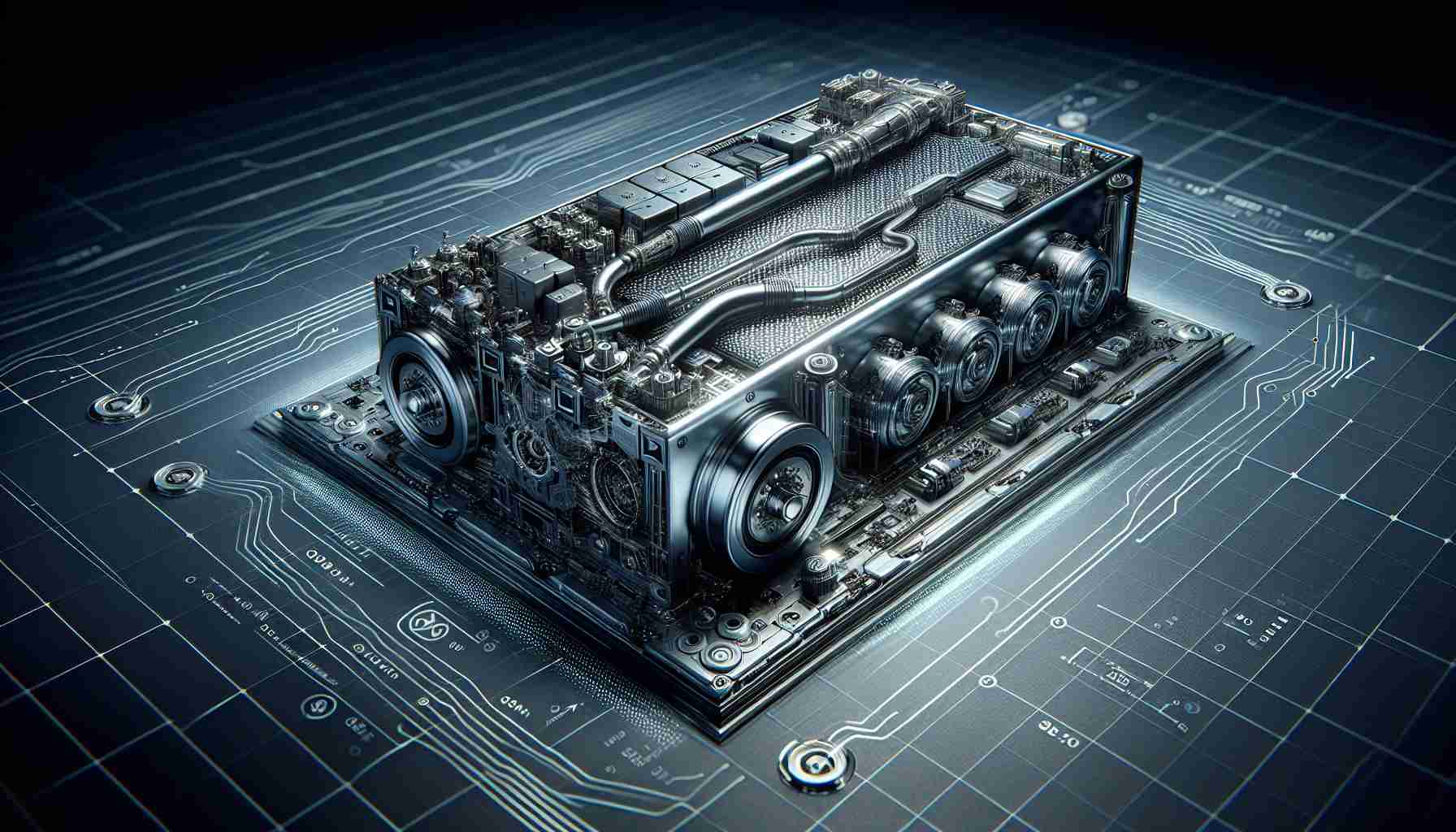Revolutionizing Electric Vehicle Technology
The electric vehicle (EV) landscape is set for a radical transformation, thanks to a groundbreaking partnership between Stellantis, the automotive giant behind popular brands such as Jeep and Dodge, and Zeta Energy, a cutting-edge lithium-sulfur battery innovator. This collaboration is geared towards achieving an impressive 50% increase in charging speeds, a change that promises to revolutionize the EV experience.
One of the standout features of the new batteries is their use of sulfur, which not only reduces manufacturing costs but also delivers greater energy density, resulting in lighter battery packs without sacrificing performance. This leap in technology indicates that electric vehicles may soon become much more affordable, paving the way for wider adoption among consumers.
Moreover, the manufacturing process promises to be environmentally friendly, utilizing recycled materials and methane, significantly reducing CO2 emissions compared to traditional production methods. As global concerns for climate change grow, advancements from Stellantis and Zeta Energy are critical for promoting sustainable transportation.
With these developments, urban planning may also see shifts, as cities prepare for an influx of electric vehicles. This transition is anticipated to stimulate job creation in clean tech sectors while potentially diminishing the dominance of fossil fuel industries.
As we embrace this promising future, the focus on affordability, efficiency, and eco-friendliness will redefine how we perceive mobility. The time for electric vehicles is now – stay tuned for updates on this historic technological leap!
Broader Implications of Electric Vehicle Revolution
The partnership between Stellantis and Zeta Energy is a harbinger of significant shifts not just in automotive technology, but also in society, culture, and the global economy. As electric vehicles (EVs) become more accessible due to advancements in battery technology, we can expect a notable change in consumer behavior. A greater acceptance of EVs may influence urban lifestyles, as the reliance on personal vehicles evolves. Public transportation systems might see increased investment as cities adapt to a new paradigm of mobility.
On an economic scale, this innovation could lead to substantial job creation within the renewable energy sector and associated industries. As the transition away from fossil fuels accelerates, traditional oil-dependent economies may have to reassess their viability. Conversely, countries investing in clean energy will likely experience economic growth, promoting a shift in global market dynamics.
The environmental implications are equally profound. With lower emissions from manufacturing and usage, these new technologies support global climate goals. Moreover, the commitment to using recycled materials in battery production aligns with a larger trend towards a circular economy, where resource reuse minimizes waste and environmental footprint. As consumer awareness of sustainability increases, green technologies are set to become integral to corporate strategies, reshaping industry standards.
Looking ahead, the trajectory of EV technology hints at an exciting, albeit challenging, future. With a major emphasis on sustainability and innovation, the car of tomorrow could not only drive change on the roads but also catalyze a broader evolution in our approach to planet-friendly living.
Transforming the Future of Electric Vehicles: A New Era of Speed and Sustainability
Revolutionizing Electric Vehicle Technology
The electric vehicle (EV) landscape is undergoing a significant transformation thanks to an innovative partnership between Stellantis, known for its iconic brands like Jeep and Dodge, and Zeta Energy, a leader in lithium-sulfur battery technology. This collaboration aims to boost charging speeds by an impressive 50%, a development that promises to enhance the overall EV experience for consumers.
Key Features of the New Lithium-Sulfur Batteries
One of the most notable aspects of the newly designed batteries is the incorporation of sulfur. This material choice not only lowers manufacturing costs but also increases energy density, which translates into lighter battery packs that do not compromise performance. As a result, electric vehicles are on the brink of becoming more cost-effective, encouraging broader acceptance among potential buyers.
Environmental Sustainability Efforts
The battery manufacturing process will also prioritize environmental sustainability by utilizing recycled materials and methane. This method significantly reduces CO2 emissions in comparison to traditional battery production, aligning with global efforts to combat climate change. This environmentally conscious approach is poised to promote sustainable transportation, making EVs an even more attractive option for eco-conscious consumers.
Market Trends and Economic Impact
As electric vehicles become more prominent, urban planning initiatives may evolve to accommodate the expected surge in EV numbers. This shift is likely to create job opportunities in clean technology sectors while potentially diminishing the long-standing influence of fossil fuel industries.
Pros and Cons of Lithium-Sulfur Batteries
Pros:
– Higher energy density leading to longer range and lighter vehicles.
– Lower manufacturing costs through the use of abundant sulfur.
– Reduced environmental impact due to recycling efforts and lower CO2 emissions.
Cons:
– Limited commercial availability as the technology is still being rolled out.
– Potential lifespan concerns as lithium-sulfur batteries are currently less mature than lithium-ion batteries.
Use Cases for Electric Vehicles with Enhanced Battery Tech
1. Urban Commuting: Improved charging speeds will allow users to recharge their EVs quickly during short stops.
2. Long-Distance Travel: Enhanced energy density means that drivers can travel further on a single charge, reducing range anxiety.
3. Commercial Fleet Operations: Businesses can benefit from reduced downtime due to faster charging, increasing operational efficiency.
Future Predictions
The focus on affordability, efficiency, and sustainability will redefine consumer perceptions of mobility. The advancements brought about by this Stellantis-Zeta collaboration may lead to a significant shift in the automotive market, where electric vehicles become the norm rather than the exception.
As we turn towards a more electrified future for transportation, the collaboration between Stellantis and Zeta Energy stands as a testament to innovation in the automotive industry. Investing in these technologies not only promises to enhance the user experience but also contributes positively to global efforts in environmental stewardship.
Stay updated on this historic technological advancement that is shaping the future of mobility, and see how it will influence the EV market landscape.
For more on electric vehicles and trends, check out EV Information.







